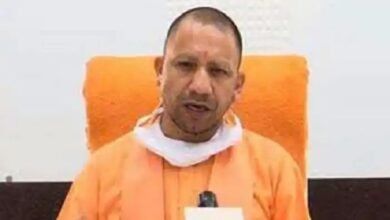[ad_1]
Last Updated: December 07, 2023, 15:03 IST

Mehta told the five-judge constitution bench that the application of section 6A is limited to only a specific period of time (File Photo)
As the hearing commenced the Centre clarified that examination of the constitutional validity of Section 6A of the Citizenship Act, has nothing to do with any other amendments in the Citizenship Act
The Supreme Court on Thursday asked the Centre why did it single out Assam and exclude West Bengal from grant of citizenship under section 6A of the Citizenship Act when the latter shares a much larger border with Bangladesh. Section 6A of the Citizenship Act relates to illegal immigrants in Assam.
Observing that illegal immigration is a serious problem, a five-judge Constitution bench headed by Chief Justice DY Chandrachud asked Solicitor General Tushar Mehta, appearing for the Centre, what is the Union government doing to safeguard the border.
“Why did you single out Assam when West Bengal shares a much larger border with Bangladesh? We want to know why was West Bengal excluded from the grant of citizenship…the argument cannot be that there was agitation in Assam…why was West Bengal left alone…what is the position in West Bengal now? the bench also comprising Justices Surya Kant, M M Sundresh, J B Pardiwala and Manoj Misra said.
As the hearing commenced the Centre clarified that examination of the constitutional validity of Section 6A of the Citizenship Act, has nothing to do with any other amendments in the Citizenship Act. Mehta told the five-judge constitution bench that the application of section 6A is limited to only a specific period of time.
“I would like to begin with some factual clarifications. Your lordships are examining a limited question of constitutional validity of Section 6A. This is confined to a very few individuals during a particular period of time. This examination has nothing to do with any other amendment to Citizenship Act,” he told the bench.
Mehta told the top court that so far as the contentions as pointed out by the petitioners are concerned like influx of immigrants from foreign countries, paucity of resources that were otherwise available to them, etc, all their concerns are true.
“Person is deemed citizen if his parents or any grandparents were born in undivided india. The category is very limited- it applies in Assam, a limited geographical area. The category from which persons are permitted is only Bangladesh, a very limited area,” Mehta said.
During the hearing, the CJI remarked that there were people who benefited from the grant of citizenship under Section 6A.
“What happens to those who weren’t granted the benefit of citizenship but are illegal immigrants. Nothing was done about them at all.”
“Everyone who came between 1966-1971 did not get citizenship because for citizenship they needed to be detected. So within that larger circle, there is a smaller circle of people who came to India but never got citizenship. What happened to those people?” the CJI asked.
The hearing is currently underway. Section 6A was inserted in the Citizenship Act as a special provision to deal with the citizenship of people covered under the Assam Accord.
It says those who came to Assam on or after January 1, 1966 but before March 25, 1971 from specified territories, including Bangladesh, in accordance with the Citizenship Act amended in 1985, and since then are residents of the northeastern state, must register themselves under section 18 for acquiring Indian citizenship.
As a result, the provision fixes March 25, 1971 as the cut-off date for granting citizenship to Bangladeshi migrants in Assam.
(This story has not been edited by News18 staff and is published from a syndicated news agency feed – PTI)



